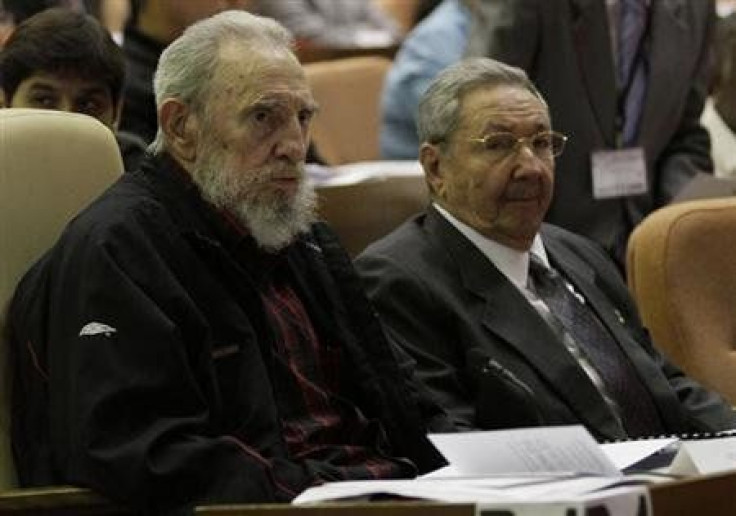Fidel Castro Urges North Korea Not To Make War With The United States

Cuba's former leader Fidel Castro warned all parties to the current rhetorical saber rattling on the Korean Peninsula to avoid making war in an open letter published Thursday.
Castro said the current situation represents "one of the most serious dangers of nuclear war" since the 1962 Cuban Missile Crisis in the letter published by Granma International, the English-language edition of the Cuban Communist Party newspaper.
Castro, 86, wrote as an ally of North Korea, stressing that the two nations have been aligned as Communist states for years.
Nevertheless, Castro, who has spoken out against nuclear arms in recent years, urged all parties to back away from making war.
Recently, North Korea's Kim Jong Un has threatened nuclear war with the U.S. While it appears unlikely that his country will attack -- or even has the technological capacity to do so -- Castro seems worried about the situation. In his letter, Castro strongly indicated any nuclear war would have repercussions around the world, not just in North Korea, South Korea and the U.S.
"The Democratic People’s Republic of Korea was always friendly with Cuba, as Cuba has always been and will continue to be with her," Castro said. "Now that the country has demonstrated its technical and scientific achievements, we remind her of her duties to the countries which have been her great friends, and it would be unjust to forget that such a war would particularly affect more than 70 percent of the population of the planet."
At another point in the letter, Castro said if U.S. President Barack Obama struck first in unleashing nuclear war, he would look like "the most sinister character in the history of the United States."
Clearly, Castro recalls the 1962 Cuban Missile Crisis, which unfolded a few years after he took over Cuba.
In October 1962, the Soviet Union began placing nuclear missiles in Cuba, located only 90 miles south of Florida.
Because Castro feared the U.S. was about to invade his nation -- a year after it had backed the Bay of Pigs invasion -- he consulted with Soviet leader Nikita Khrushchev about the possibility of nuclear war with the U.S. Ultimately, Khrushchev and U.S. President John F. Kennedy backed away from that precipice.
So it appears the current crisis on the Korean Peninsula is bringing back memories for Castro, who seems to fear the world is once again at the brink.
© Copyright IBTimes 2024. All rights reserved.












